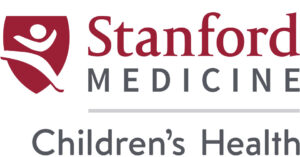Lucile Packard Foundation for Children’s Health Releases Community Grantmaking Guidelines
Palo Alto – This week more than 600 child health organizations and schools throughout San Mateo and Santa Clara Counties will learn details about a new potential source of funding. Lucile Packard Foundation for Children’s Health, an independent public charity established in 1996, has sent each its community grantmaking guidelines. Although the new Foundation shares some interests with The David and Lucile Packard Foundation and Lucile Salter Packard Children’s Hospital, it is wholly independent of both.
The mission of Lucile Packard Foundation for Children’s Health is to promote, protect, and sustain the physical, mental, emotional, and behavioral health of children in its two-county service area. Given the Foundation’s resources and its separate pediatric fundraising role for Lucile Salter Packard Children’s Hospital and the pediatric programs of the Stanford University School of Medicine, the Foundation’s Board of Directors determined to focus its grantmaking on two specific areas within San Mateo and Santa Clara Counties. The areas are prevention of injury to children ages 0-5 and promotion of emotional, mental, and behavioral health in pre-teens.
“The Board of Directors spent more than a year engaged in extensive strategic planning for our inaugural community grantmaking program,” says Foundation President and CEO Stephen Peeps. “This process affirmed that most of the region’s children are born healthy. Their health is subsequently compromised by circumstances in which they live, the behavior of others toward them, and, ultimately, their own behavior,” he says. “As such, we believe many negative health outcomes are preventable, at least in principle. Accordingly, we seek to partner with community-based, family-centered, not-for-profit organizations in San Mateo and Santa Clara Counties whose primary focus is prevention.”
The 18-month planning process included gathering and analyzing statistical data on the status of children’s health in the two counties. Interviews and focus groups with key informants in the community were conducted, and intensive discussions of grantmaking alternatives were undertaken.
Two critical developmental stages on the age spectrum of childhood emerged as focal points where the Foundation could have the greatest impact on preventing permanent or recurring damage to a child’s health. Those two are the pre-school years (ages 0-5), during which a child is highly vulnerable to the behavior of adults, and the often overlooked pre-teen years (ages 9-13), when a child’s or a peer’s behavioral choices can put that child’s health or even life at serious risk.
For the pre-school age group, initial emphasis will be placed on protecting children from injury, the leading cause of childhood death and disability. Within this area and age group, the Foundation will focus particularly on neglect, child abuse and other forms of intentional injury. The pre-teen period, often referred to as the “Tweens,” represents highly formative years when promoting strong emotional, mental and behavioral health and resiliency is the key to helping youngsters make appropriate first-time judgements about behavior and risk-taking.
The Foundation’s first-year budget for community grants is approximately $2.5 million with first round funding targeted for January 2001. Individual grants are expected to range between $20,000 and $100,000.
